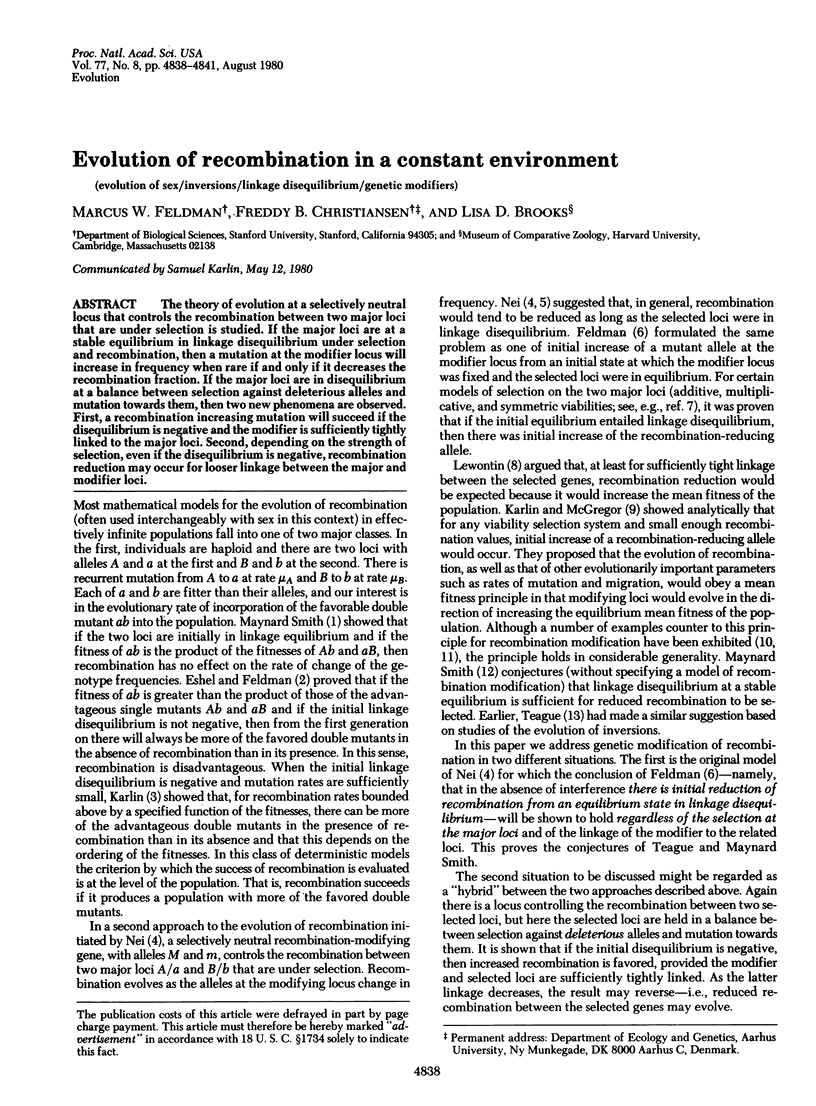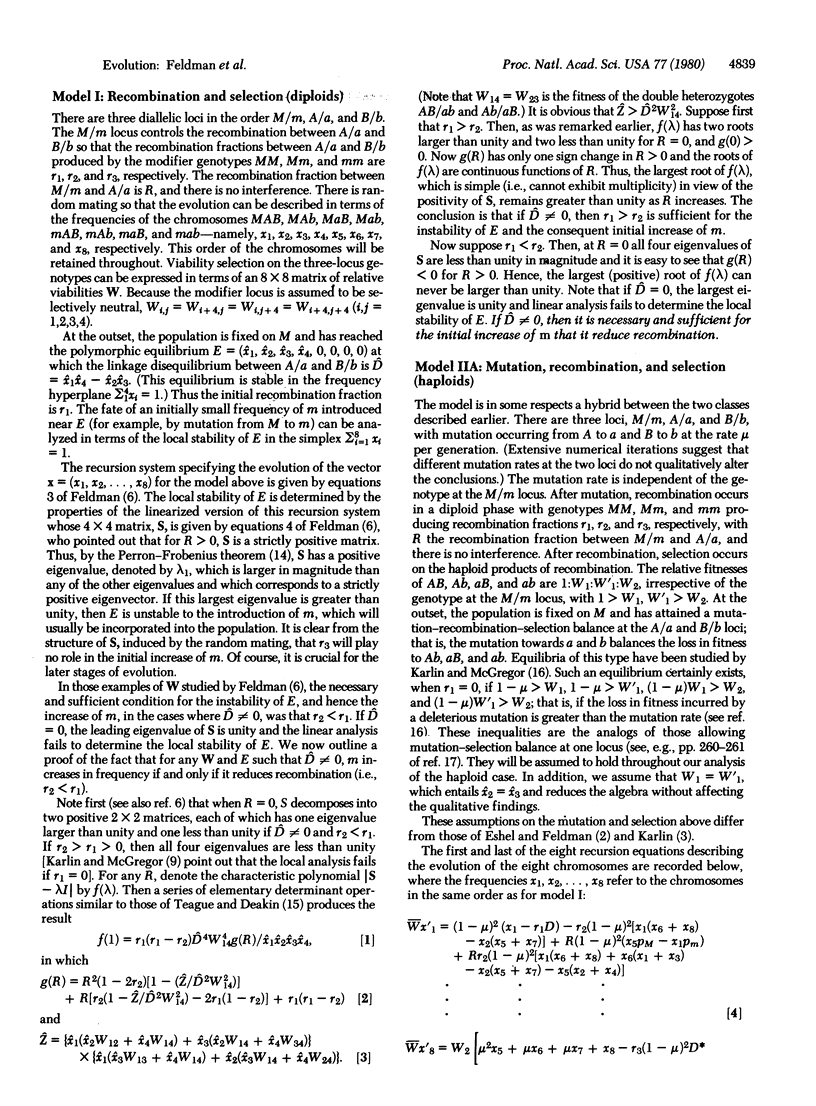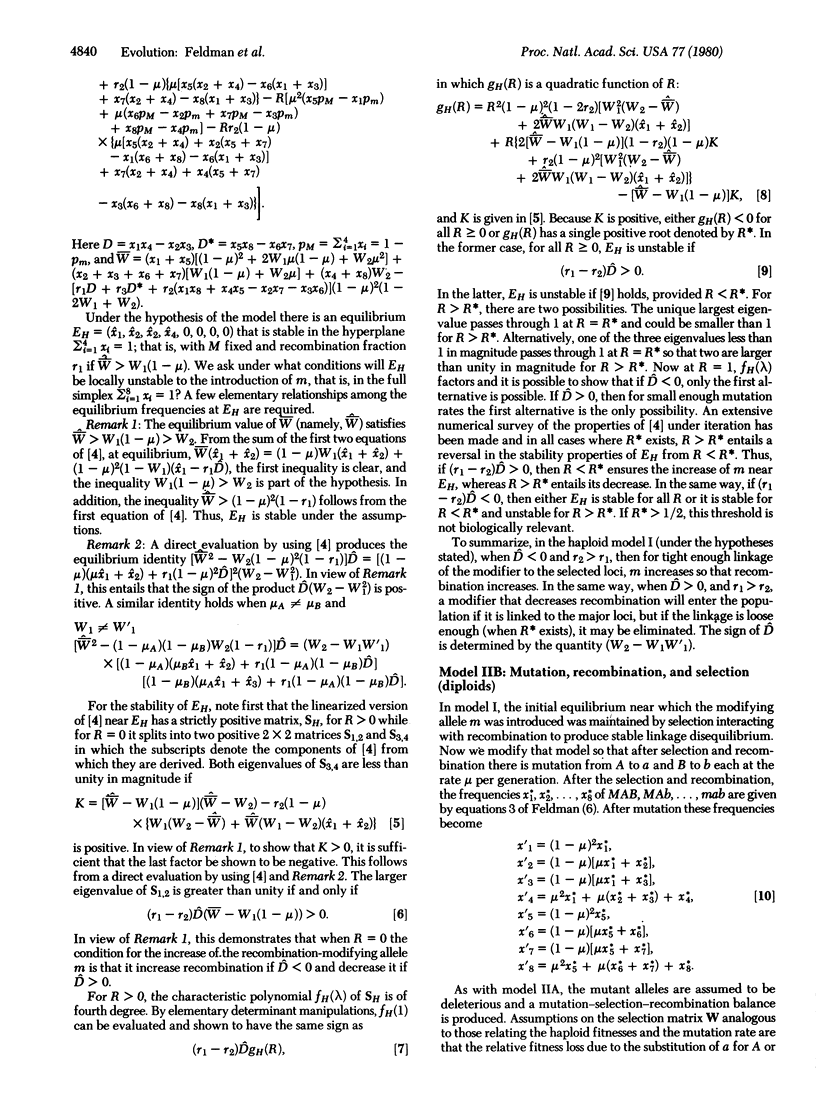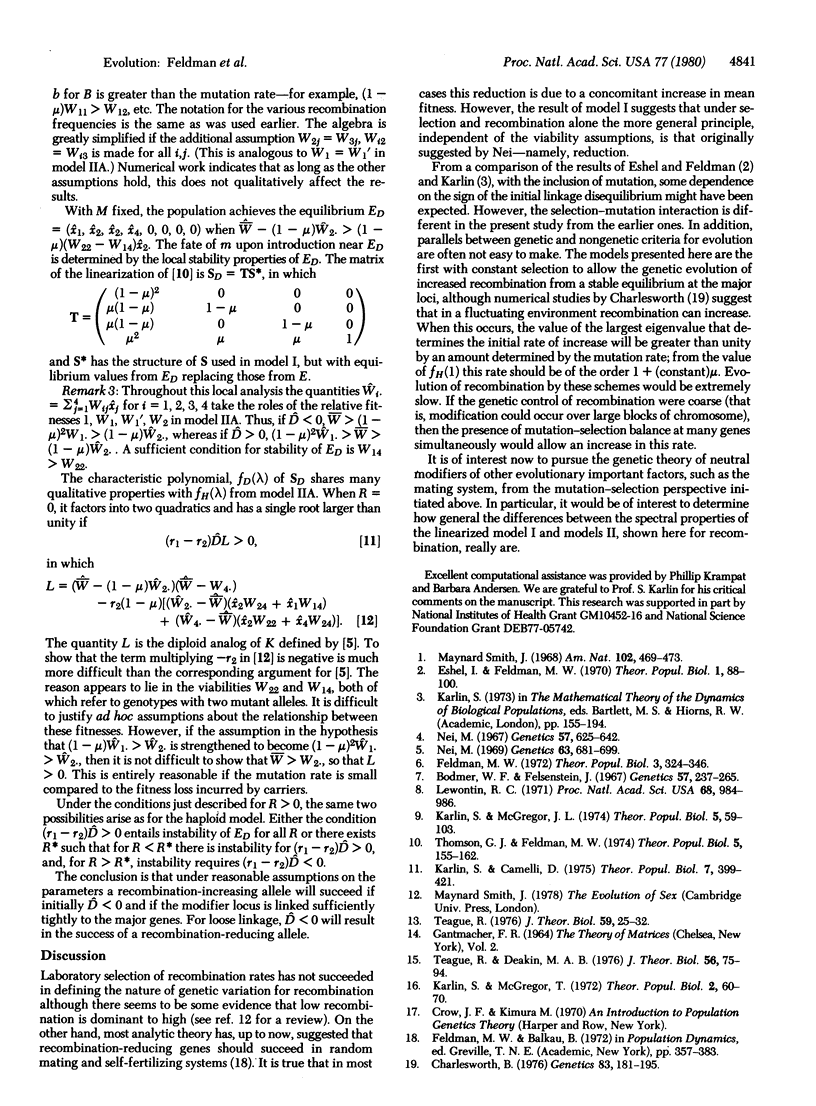Abstract
The theory of evolution at a selectively neutral locus that controls the recombination between two major loci that are under selection is studied. If the major loci are at a stable equilibrium in linkage disequilibrium under selection and recombination, then a mutation at the modifier locus will increase in frequency when rare if and only if it decreases the recombination fraction. If the major loci are in disequilibrium at a balance between selection against deleterious alleles and mutation towards them, then two new phenomena are observed. First, a recombination increasing mutation will succeed if the disequilibrium is negative and the modifier is sufficiently tightly linked to the major loci. Second, depending on the strength of selection, even if the disequilibrium is negative, recombination reduction may occur for looser linkage between the major and modifier loci.
Keywords: evolution of sex, inversions, linkage disequilibrium, genetic modifiers
Full text
PDF



Selected References
These references are in PubMed. This may not be the complete list of references from this article.
- Bodmer W. F., Felsenstein J. Linkage and selection: theoretical analysis of the deterministic two locus random mating model. Genetics. 1967 Oct;57(2):237–265. doi: 10.1093/genetics/57.2.237. [DOI] [PMC free article] [PubMed] [Google Scholar]
- Charlesworth B. Recombination modification in a flucturating environment. Genetics. 1976 May;83(1):181–195. doi: 10.1093/genetics/83.1.181. [DOI] [PMC free article] [PubMed] [Google Scholar]
- Eshel I., Feldman M. W. On the evolutionary effect of recombination. Theor Popul Biol. 1970 May;1(1):88–100. doi: 10.1016/0040-5809(70)90043-2. [DOI] [PubMed] [Google Scholar]
- Feldman M. W. Selection for linkage modification. I. Random mating populations. Theor Popul Biol. 1972 Sep;3(3):324–346. doi: 10.1016/0040-5809(72)90007-x. [DOI] [PubMed] [Google Scholar]
- Karlin S., Carmelli D. Numerical studies on two-loci selection models with general viabilities. Theor Popul Biol. 1975 Jun;7(3):399–421. doi: 10.1016/0040-5809(75)90026-x. [DOI] [PubMed] [Google Scholar]
- Karlin S., McGregor J. On mutation selection balance for two-locus haploid and diploid populations. Theor Popul Biol. 1971 Mar;2(1):60–70. doi: 10.1016/0040-5809(71)90005-0. [DOI] [PubMed] [Google Scholar]
- Karlin S., McGregor J. Towards a theory of the evolution of modifier genes. Theor Popul Biol. 1974 Feb;5(1):59–103. doi: 10.1016/0040-5809(74)90052-5. [DOI] [PubMed] [Google Scholar]
- Lewontin R. C. The effect of genetic linkage on the mean fitness of a population. Proc Natl Acad Sci U S A. 1971 May;68(5):984–986. doi: 10.1073/pnas.68.5.984. [DOI] [PMC free article] [PubMed] [Google Scholar]
- Nei M. Linkage modifications and sex difference in recombination. Genetics. 1969 Nov;63(3):681–699. doi: 10.1093/genetics/63.3.681. [DOI] [PMC free article] [PubMed] [Google Scholar]
- Nei M. Modification of linkage intensity by natural selection. Genetics. 1967 Nov;57(3):625–641. doi: 10.1093/genetics/57.3.625. [DOI] [PMC free article] [PubMed] [Google Scholar]
- Teague R. B., Deakin M. A. Inversion polymorphism: character and stability of equilibria. J Theor Biol. 1976 Jan;56(1):75–94. doi: 10.1016/s0022-5193(76)80046-x. [DOI] [PubMed] [Google Scholar]
- Teague R. A result on the selection of recombination altering mechanisms. J Theor Biol. 1976 Jun;59(1):25–32. doi: 10.1016/s0022-5193(76)80022-7. [DOI] [PubMed] [Google Scholar]
- Thomson G. J., Feldman M. W. Population genetics of modifiers of meiotic drive. II. Linkage modification in the segregation distortion system. Theor Popul Biol. 1974 Apr;5(2):155–162. doi: 10.1016/0040-5809(74)90038-0. [DOI] [PubMed] [Google Scholar]


